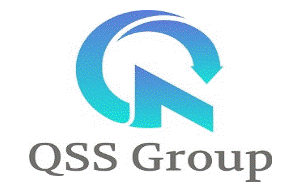In this comprehensive buyer’s guide, we’ll explore key insights to empower your decision-making process.
Understanding Your Business Needs: The Foundation of Decision-Making
In the intricate world of industrial solutions, the journey begins with a deep understanding of your business needs. This foundational step involves:
- Identification of Pain Points: Conduct a thorough analysis of your current operational challenges. Identify bottlenecks, inefficiencies, and areas where improvements are needed. Consider:
- Customer feedback and complaints
- Operational data and analytics
- Input from frontline employees
- Scalability and Future Growth: Consider your long-term goals. Seek solutions that are not only tailored to your current needs but are also scalable to accommodate future growth. Delve into:
- Expansion plans and market trends
- Technology roadmaps and advancements
- Flexibility and adaptability of potential solutions
Factors to Consider in Industrial Solutions Selection: A Comprehensive Checklist
As you embark on the journey of selecting industrial solutions, it’s essential to have a comprehensive checklist in hand:
- Technology Integration: Ensure seamless integration with your existing systems. Look for solutions aligned with Industry 4.0 standards for intelligent and connected workflows. Consider:
- Compatibility with existing hardware and software
- Interoperability with emerging technologies (IoT, AI, etc.)
- Future-proofing against technological advancements
- Reliability and Maintenance: Research the reputation of solution providers and assess maintenance needs. Choose solutions that are reliable and manageable to minimize downtime. Explore:
- Vendor track record and client testimonials
- Predictive maintenance features
- Availability of remote monitoring and diagnostics
- Cost Considerations: Beyond upfront costs, consider the total cost of ownership. Conduct a thorough ROI analysis to ensure long-term cost-effectiveness. Scrutinize:
- Initial purchase cost and financing options
- Maintenance and support fees
- Potential savings in operational costs
Common Challenges in Industrial Solutions Adoption: Navigating Potential Obstacles
The adoption of new industrial solutions often comes with challenges. Here’s how to navigate potential obstacles:
- Employee Training and Adaptation: Invest in comprehensive training programs to address employee resistance. Facilitate change management to communicate the benefits of the new solutions.
- Data Security and Compliance: Ensure robust data security measures and compliance with industry standards to protect sensitive information and avoid legal issues.
Vendor Selection: Choosing the Right Partner for Success
Selecting the right vendor is a critical aspect of the industrial solutions journey:
- Vendor Reputation: Evaluate vendors based on their track record and customer testimonials. Consider after-sales support, which is crucial for addressing issues and ensuring optimal performance.
- Customization and Support: Seek vendors that offer customization options to tailor solutions to your specific needs. Look for those providing 24/7 technical support for prompt issue resolution.
Conclusion: Making Informed Decisions for Future Success
In the dynamic landscape of industrial solutions, informed decision-making is the key to unlocking future success. By understanding your needs, considering crucial factors, anticipating challenges, and selecting a reliable vendor, you can embark on a journey that not only streamlines your processes but also positions your business for long-term growth.




